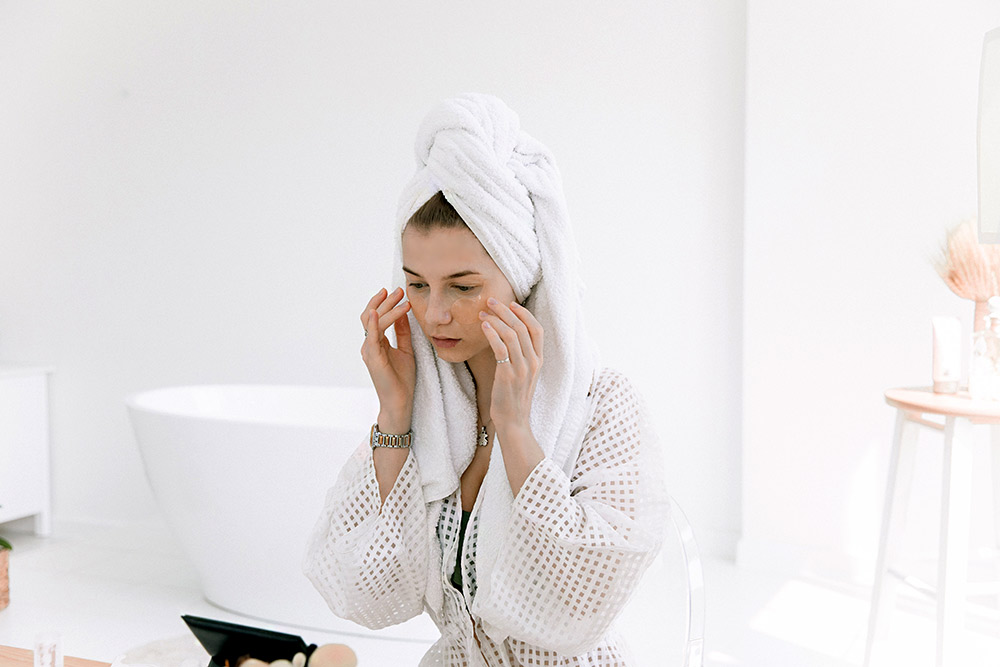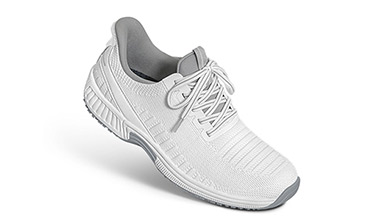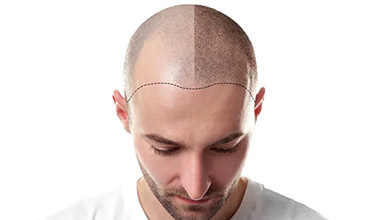The Science of Ageing Skin and the Role of Hyaluronic Acid (HA) Fillers in Addressing Deep Lines
As we age, our skin undergoes various changes leading to the appearance of deep lines and wrinkles, often becoming a primary cosmetic concern. These visible signs of ageing can affect self-esteem and are common reasons for seeking aesthetic treatments.

In this article, we will delve into the role of Hyaluronic Acid fillers in reversing some of these age-related changes.
Understanding the Structure of Youthful Skin
Youthful skin is characterized by its smooth texture, elasticity, and resilience, primarily due to high collagen and elastin content. These proteins are crucial for maintaining skin's structure and its ability to bounce back after being stretched or compressed. However, with time, these components diminish, and skin loses its youthful appearance.
The Science Behind Skin Ageing
The ageing of skin is a complex biological process influenced by a mix of factors. On a cellular level, the natural reduction in the production of collagen, elastin, and hyaluronic acid weakens the skin's structural integrity. External factors such as UV exposure and lifestyle choices also play a significant role in accelerating these changes.
The Formation of Deep Lines and Wrinkles
As the supportive matrix of the skin breaks down, enduring deep lines and wrinkles become more prominent. This is further exacerbated by the repetitive movement of facial muscles, leading to expression lines becoming etched into the skin's surface over time.
Dermal Fillers and Hyaluronic Acid (HA)
Dermal fillers are a non-surgical option for addressing deep lines, with HA fillers being among the most popular due to their safety and effectiveness. HA is a naturally occurring substance that attracts and binds water, thus providing hydration and volume to the skin.
How HA Fillers Work to Reduce Deep Lines
HA fillers are designed to mimic the body's natural hyaluronic acid, replenishing lost volume and hydrating the skin. Upon injection, they fill in wrinkles and folds, leading to an instantly smoother and more youthful complexion. As a specialist in this area, I can attest to the remarkable transformations achieved through the strategic use of HA fillers.
Different Types of HA Fillers
There exists a range of HA fillers, each with unique properties and indications. The following table provides an overview of various HA fillers and their specific applications.
Brand - Properties - Target Areas
Juvéderm - Smooth and malleable, suitable for moderate to severe wrinkles - Lips, cheeks, nasolabial folds
Restylane - Stabilized HA for durability - Under eyes, lips, fine lines
Belotero - Integrates with skin tissue for natural feel - Fine lines, nasolabial folds, marionette lines
Teosyal - Highly cross-linked HA for longevity - Deep wrinkles, facial contours, volume restoration
For those considering a profound volumizing effect, Teosyal can be an excellent choice. To explore more about Teosyal and where to securely purchase it, you can visit your source to buy Teosyal for additional details and options.
The Procedure: What to Expect When Receiving HA Fillers
Receiving HA fillers is typically a quick and straightforward procedure. However, patients should be aware of the following steps:
Consultation: Discuss aesthetic goals and assess suitability for HA fillers.
Pre-treatment instructions: Advising on avoiding certain medications or supplements that may increase bruising.
Injection: The filler is strategically injected into targeted areas.
Post-treatment care: Instructions on managing any immediate swelling or bruising.
Follow-up: Reviewing results and planning any additional touch-ups if necessary.
Benefits and Risks of Using HA Fillers for Deep Lines
Using HA fillers for treating deep lines offers various advantages, but patients must also be informed about the risks. The table below outlines the benefits and potential side effects.
Benefits
Immediate results
Non-permanent and reversible
Minimal downtime
Natural-looking outcome
Risks
Bruising at injection sites
Swelling
Rare allergic reactions
Asymmetry (typically correctable)
Skin Care & Maintenance After HA Filler Injections
After receiving HA filler injections, it's essential to follow a structured skincare regimen that maximizes the results and prolongs the youthful appearance of your skin. A consistent routine not only supports the effects of the fillers but also maintains overall skin health. Here's a skincare routine tailored for post-filler care to enhance and sustain the rejuvenating effects of your treatment.
AM Skincare Routine:
Cleanser: Start with a hydrating cleanser over a foaming one to avoid stripping the skin of its natural oils, which is critical to keeping the treated areas supple and hydrated.
Serums: Apply a serum with 5%+ niacinamide and panthenol to address redness and inflammation, followed by a hyaluronic acid serum to lock in moisture and bolster the hydrating effects of your fillers.
Moisturizer: Look for a moisturizer rich in ceramides, ectoin, and niacinamide to fortify the skin's barrier function, keeping it resilient and well-hydrated.
Sun Protection: Finish with broad-spectrum SPF50+ sunscreen. UV exposure can degrade both your natural collagen and the injected hyaluronic acid, so diligent sun protection is vital.
PM Skincare Routine:
Cleanser: Repeat the morning cleansing routine to remove impurities without causing dryness.
Serums: In addition to your morning serums, consider using one with resveratrol in the evening for its antioxidant properties and its ability to combat oxidative stress from environmental pollutants.
Moisturizer: Reapply your moisturizer to ensure your skin remains hydrated throughout the night.
Tretinoin: A low percentage tretinoin can be beneficial for encouraging cell turnover and collagen production, complementing the anti-aging effects of HA fillers. However, it's crucial to use tretinoin as directed by a dermatologist to avoid irritation, and not immediately after filler injections.
Protection: Seal in your PM routine with an occlusive like petroleum jelly or Aquaphor. These products create a protective barrier, preventing transepidermal water loss, which is especially beneficial after procedures like HA filler injections.
Maintaining this skincare routine can substantially augment the effects of your HA filler treatment. However, it's essential to personalize your regimen based on your skin's needs and to consult your dermatologist for any specific concerns or adjustments
Advancements in HA filler technology continue to evolve, with newer formulations and delivery methods promising enhanced outcomes. Concurrently, a holistic approach to ageing, considering both in-clinic procedures and at-home skincare, proves to be the most effective strategy for managing ageing skin. In any case, if you are insecure about your facial contours, you should consult with a dermatologist to see if HA fillers could be an option for you.
Hits: 1081 | Leave a comment



















